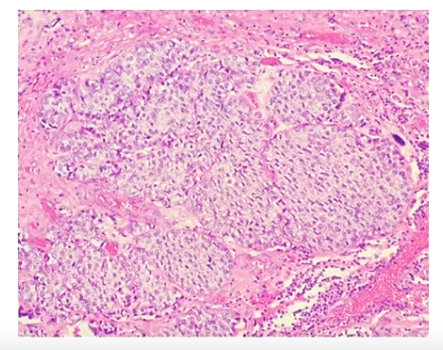mMichael S. Cookson, MD, presented “Muscle Invasive Bladder Cancer: 2018 Guidelines” during the 3rd Annual International Bladder Cancer Update on January 23, 2019 in Beaver Creek, Colorado.
How to cite: Cookson, Michael S. “Muscle Invasive Bladder Cancer: 2018 Guidelines” January 23, 2019. Accessed Jun 2025. https://grandroundsinurology.com/muscle-invasive-bladder-cancer-2018-guidelines-2/
Muscle Invasive Bladder Cancer: 2018 Guidelines- Summary:
Michael S. Cookson, MD, MMHC, reviews highlights from the recently released American Urological Association (AUA) Guidelines for muscle invasive bladder cancer (MIBC). He focuses on initial patient evaluation, the use of neoadjuvant chemotherapy, perioperative management, patient selection for bladder preservation, and surveillance following treatment.
Abstract:
The AUA has recently released guidelines providing a risk-stratified clinical framework for the management of MIBC. This presentation underlines highlights from the 35 statements included in the guidelines.
Initial patient evaluation includes a thorough review of the pathology with an emphasis on expert review for variant histology. In addition, clinicians should discuss the impact of treatment on cancer control and quality of life with the patient.
Clinicians should consider offering neoadjuvant cisplatin-based chemotherapy to patients with invasive bladder cancer. Clinicians should include the option of bladder preservation through trimodal therapy in the patient discussion, as well as radiation and chemotherapy. For patients who opt for radical cystectomy, clinicians should consider the importance of a timely radical cystectomy about four weeks following neoadjuvant chemotherapy. For patients who undergo radical cystectomy without prior chemotherapy, clinicians should consider offering adjuvant cisplatin-based chemotherapy to those with locally advanced (T3/T4) and node positive (N1) disease.
Perioperative management has evolved. Therefore, optimization of patient performance status, including smoking cessation, nutritional counseling, and physical conditioning, is an important consideration. This presentation will also highlight the use of enhanced recovery after surgery (ERAS) pathways in perioperative management. This includes the use of venous thromboembolism prophylaxis for up to 30 days postoperatively, the use of Entereg® postoperatively, and optimization of intraoperative and postoperative fluid management.
This presentation will discuss the importance of a thorough pelvic lymphadenectomy at the time of radical cystectomy, as well as considerations and patient selection for choice of urinary diversion. The AUA Guidelines statement also includes surveillance following treatment for invasive bladder cancer, as well as survivorship.
About the International Bladder Cancer Update
The International Bladder Cancer Update (IBCU) is an annual one-day CME conference focused on bladder cancer treatment updates. IBCU takes place during its sister conference, the International Prostate Cancer Update (IPCU). The conference’s faculty consists of international experts, and the event caters to urologists, urologic oncologists, and other healthcare professionals. In addition to didactic lectures, IBCU features interactive discussions, a panel roundtable, debates, and case presentations. Dr. Cookson presented this lecture during the 3rd IBCU in 2019. Please visit this page in order to learn more about future IBCU meetings.
ABOUT THE AUTHOR
Michael S. Cookson, MD, MMHC, is Professor and Chairman of the Department of Urology and holds the Donald D. Albers Endowed Chair in Urology at the University of Oklahoma Health Sciences Center in Oklahoma City. He has authored some 240 peer-reviewed journal publications as well as more than 30 chapters of various textbooks, and he is nationally recognized for his outstanding contributions to urologic oncology. Dr. Cookson completed his Urology Residency at the University of Texas, San Antonio, and completed his Urologic Oncology Fellowship at Memorial Sloan-Kettering Cancer Center in New York. From 1998 to 2013, he served as the Vice Chairman of Urologic Surgery and Director of the Urologic Oncology Fellowship Program at Vanderbilt University. Dr. Cookson has devoted much of his academic career to the management of patients with urologic cancers, with a strong emphasis on clinical guidelines, education, and evidenced-based medicine. He was a member of the AUA/ABU Examination Committee for 10 years, serving as Oncology Consultant and Pathology Editor. He also serves on the ABU Oral Examination Committee. He is a Co-Founder of the Oncology Knowledge Assessment Test (OKAT), an SUO-mandated examination. He also served as Chair for the OKAT for 5 years. In 2011, he received the President’s Distinguished Service Award from the SUO for educational contributions. He received the 2018 AUA Presidential Citation for Outstanding Service for his role in the development of the OKAT and as Chair of the Castration-Resistant Prostate Cancer Guidelines Committee at the AUA 2018 Annual Meeting. Dr. Cookson has previously served as a member of the AUA Guidelines on Localized Prostate Cancer Committee. Dr. Cookson is currently serving out the 2019-2020 term as the SUO President.

